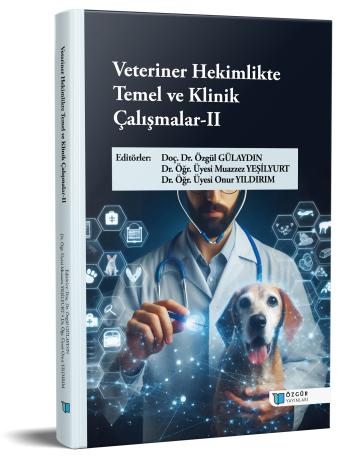
The Use of Clinical Nutrition in Cats and Dogs for Internal Diseases
Chapter from the book:
Gülaydın,
Ö.
&
Yeşilyurt,
M.
&
Yıldırım,
O.
(eds.)
2025.
Basic and Clinical Studies in Veterinary Medicine-II.
Synopsis
Clinical nutrition in cats and dogs is considered not only supportive but an integral part of treatment in the management of internal diseases. Malnutrition increases complication rates, delays recovery, and raises mortality. Enteral nutrition initiated early in critically ill patients supports the immune response by preserving gastrointestinal integrity, while parenteral nutrition is vital when gastrointestinal function is compromised. Elimination diets, hydrolyzed proteins, and prebiotic-probiotic support are prominent in gastrointestinal diseases, while controlled but high-quality protein, MCT fats, vitamin and antioxidant supplements, and copper restriction are recommended in liver diseases. In chronic kidney disease, phosphorus restriction, high-biological-value proteins, omega-3 fatty acids, and antioxidants improve prognosis. In cardiac diseases, moderate sodium restriction, taurine, L-carnitine, and omega-3 support are important. Clinical nutrition in cats and dogs is considered not only supportive but an integral part of treatment in the management of internal diseases. In oncological diseases, diets low in carbohydrates, high in fat, and containing high-quality protein, along with omega-3 fatty acids and arginine supplementation, slow cachexia. In endocrine diseases, low-carbohydrate, high-protein diets are preferred for diabetic cats, while fiber-rich diets are preferred for dogs; energy restriction is preferred for obesity; and special diets appropriate for the metabolic state are preferred for thyroid disorders. In conclusion, clinical nutrition is a fundamental treatment tool that slows disease progression, reduces complications, and improves quality of life. Current literature strongly emphasizes that nutritional strategies are as critical as pharmacological treatment.

